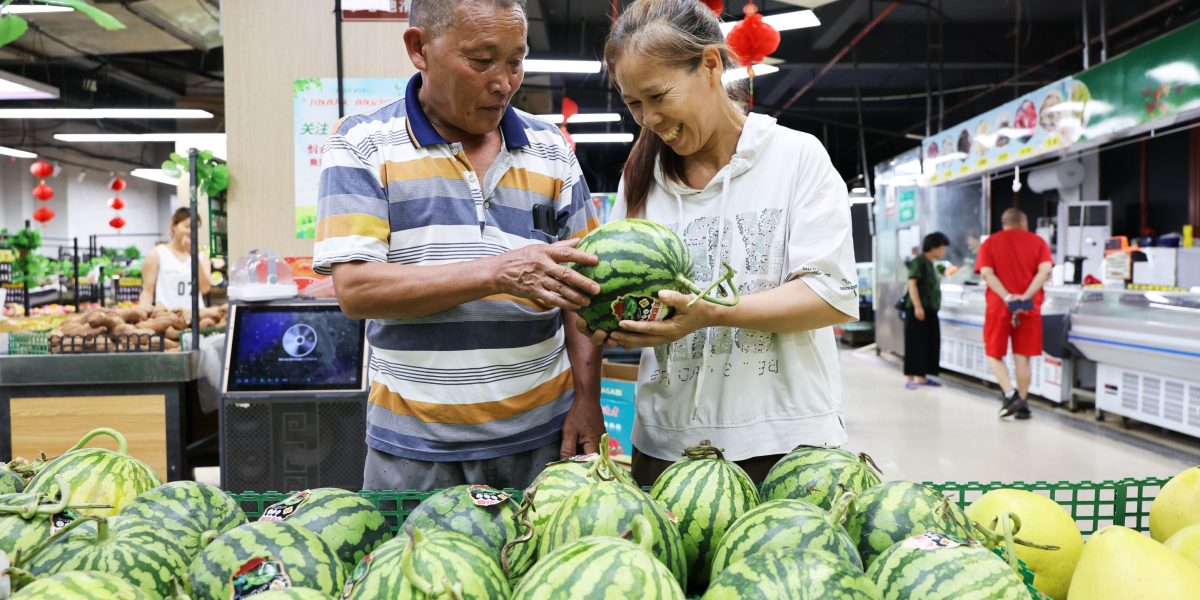
Cooking, cleaning and caring for children during the day, Chen Hualiang takes on household chores that many Chinese fathers often leave to their wives, bucking a deeply entrenched patriarchal tradition and even inspiring a hit TV show.
The former project manager gave up the rat race to join a growing number of “full-time dads,” as they are known in China.
“When you work, you dream of a great career and that this money will help your family,” he told AFP from a villa on the outskirts of Shanghai, as his four-year-old daughter and 11-year-old son played nearby.
“But nothing is certain, and a paycheck isn’t necessarily what your family needs most.”
Social norms in China have dictated for centuries that men are the breadwinners, while women take care of the home and children.
“My father was just a father. I never felt like he could help me, except financially,” Chen said.
“I want to be like a friend to my children, so they can share things with me.”
More than half of Chinese men now say they would agree to become a stay-at-home dad, a 2019 survey cited by state media found – up from just 17 percent in 2007.
This coincided with a broader recognition of women’s rights and their access to higher education, although they remain underrepresented in senior positions.
“The increase in the number of stay-at-home fathers is due to the fact that women have a higher status today,” Pan Xingzhi, founder of an online psychological consulting platform, told AFP.
People also see “value for money” – for a couple, forgoing a salary and caring for their baby themselves is often cheaper than hiring a nanny or childminder, Pan said.
‘Super helpful’
For Chen, his decision to stay home frees up time for his wife Mao Li, author of a best-selling book about stay-at-home dads.
“At the beginning of our marriage, I wondered if he was helpful as a husband,” she said.
‘He worked a lot, so he didn’t help me with the kids or pay much attention to me. But now that he’s taking care of the kids and staying home, I find him super supportive,” she said.
“I give him a 9.5 out of 10.”
On Xiaohongshu, China’s equivalent of Instagram, other young stay-at-home dads proudly promote their lifestyle choices.
Chang Wenhao, 37, a content creator and education entrepreneur from the southern Chinese city of Zhuhai, is one convert.
He adjusted his working hours to be available to his seven-year-old daughter and five-year-old son 80 percent of the time, including camping, horseback riding, cycling and hiking.
“In terms of teaching methods, encouragement, how to build self-confidence, develop their skills, their independence in life, I bring to them things that they don’t learn at school or from other adults,” he said.
Mao’s book inspired a 36-episode television series called “Husband and Wife” on the theme of full-time fathers, reigniting the sometimes heated debate over the role of men in the family in China.
“My parents are a little concerned about me being a stay-at-home dad,” Chen said.
“Some people, especially on social media, say I live off my wife.”
‘You have to work’
Plenty of other stay-at-home dads also report pushback from their families.
Xu Xiaolin, 34, from the eastern Chinese of Xiamen, is a stay-at-home father since the company he worked for went bankrupt.
“In the beginning, my parents and grandparents often said: you have to work,” Xu told AFP.
“Older neighbors sometimes make comments to them. It bothers them, so they put pressure on me.”
Passersby sometimes make fun of him when he walks his two-year-old son alone, he said.
“But people under 35 no longer have that mentality.”
Chang, the entrepreneur, also said he has noticed the beginnings of a change in recent years.
“Many fathers are beginning to value their children’s company and education” and listen to their needs.
“This will continue to evolve,” he said.
“But deep changes will still take time.”





















